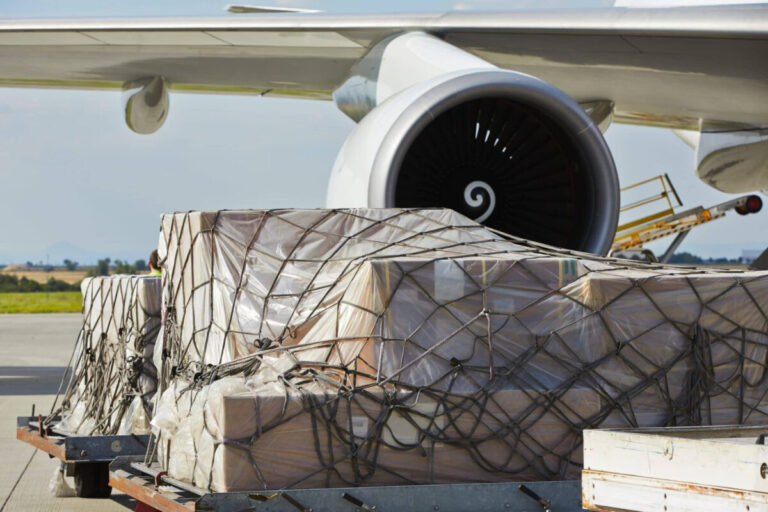
FedEx released its annual Economic Impact Report, which analyzes the company’s global network and its role in building prosperity in local communities during fiscal year 2024 (FY2024).. Prepared in consultation with Dun & Bradstreet (NYSE: DNB), a leading provider of business decision data and analytics, this study highlights the “FedEx Effect” – the impact of FedEx on accelerating the flow of goods and ideas that… Generate economic growth across countries. and regions.
“At FedEx, we have a vision to make supply chains smarter for everyone by leveraging advanced data and technology to better serve our customers and their customers, thereby expanding our reach and impact,” said Raj Subramaniam, President and CEO of FedEx Corporation. “The FedEx Impact represents our unwavering commitment to excellence, economic growth and the communities in which we live and work.”
The report reveals that FedEx contributed more than $85 billion in direct impact to the global economy in fiscal year 2024, representing approximately 0.1% of the total net global economic output. This activity reflects the size of the FedEx network and the company’s ongoing efforts to enhance its innovative services that help businesses of all sizes connect with customers and enhance their operations. The company has the most comprehensive transportation network in the world, serving more than 220 countries and territories. Additionally, FedEx employs more than 500,000 people across more than 5,000 facilities and moves an average of 16 million packages daily.
Impact of the Asia-Pacific region
The Asia-Pacific region continues to emerge as a center of economic opportunity, with rapid growth in major economies such as China and Japan and developing markets such as Vietnam, Thailand and Indonesia. FedEx plays a critical role in facilitating regional trade through its growing air and ground network spanning 43 countries and territories in the Asia-Pacific region. In fiscal year 2024, FedEx directly contributed an estimated 0.2% to net economic output in the transportation, warehousing and communications sector in the Asia-Pacific region. FedEx also indirectly contributed an estimated US$1.7 billion to the region’s economy in fiscal year 2024.
“We recognize the pivotal role the Asia Pacific region plays and its contribution to the global economy, and we are committed to driving its growth,” said Koel Britt, president, Asia Pacific, FedEx. “By strategically investing in infrastructure and enhancing connectivity within the region and globally, we are enabling companies to unlock new growth opportunities while positioning the Asia-Pacific region as a hub for international investment. We will remain steadfast in expanding access to global trade, enhancing economic growth, and creating value.” Long-term sustainable for communities, customers and businesses across the region.
FedEx’s economic footprint in the region continues to grow.
commerce: FedEx’s continued support of trade policies that facilitate greater market access advances the company’s goal of connecting people and capabilities around the world. As countries like Vietnam emerge as central global production hubs for technology equipment, semiconductors, textiles and more, FedEx has strengthened its connections within the region, for example by adding four new weekly flights from Ho Chi Minh City to the FedEx Asia Pacific Hub in Guangzhou. China.
Operational improvements: FedEx continues to expand its presence in the Asia Pacific region and has established a new regional headquarters in Singapore. FedEx also upgraded its Shenzhen International Gateway to double its package sorting capacity. Construction has begun on a new South China Operations Center in Guangzhou that will be able to sort up to 25,000 packages and documents per hour – three times the capacity of the current FedEx Guangzhou Gateway. In addition, we have plans to expand the FedEx Cargo Center at the Farglory Air Cargo Park at Taoyuan International Airport in Taiwan. These vital centers help meet the growing demand for efficient and large-scale shipping solutions.
Sustainability: The company continues to invest in renewable energy to power its facilities, electrify its transportation and delivery fleet, and carbon sequestration research to develop natural carbon capture solutions for adoption across the transportation industry. In fiscal 2024, FedEx opened new energy-efficient facilities in Singapore, China and Australia, and added five commercial electric tricycles to its PUD fleet in Taiwan. The company also achieved a historic milestone by completing the first cross-border delivery of a package via electric vehicle from Malaysia to Singapore. The historic 252-mile journey avoided approximately 220 pounds of tailpipe carbon dioxide emissions compared to making the same journey in a diesel truck, and was recognized by the Malaysian Book of Records for “Malaysia’s first zero-emission cross-border delivery.”
Suppliers: FedEx’s supplier spending contributes significantly to the small and medium-sized (SAM) market. In calendar year 2023, 68 percent of FedEx supply chain spending in the Asia Pacific region went to SAMs, contributing to the number of small business jobs created in the region.
Small businesses: FedEx helps small and medium-sized businesses (SAMs) accelerate their growth and expand their global reach, supporting local job creation and economic activity. In addition to SAM’s portfolio solutions, the company supports the SAM community, through its small business grant program to recognize innovative entrepreneurs and provide funding to help accelerate their growth. In the Asia Pacific region, four companies from Indonesia, Malaysia, the Philippines and Singapore shared a total prize pool of US$69,000. The winner of the $30,000 grand prize was Lucence, a precision oncology startup from Singapore that is developing non-invasive tests aimed at accurately diagnosing cancer.
Giving: FedEx supports the local communities it serves through FedEx Cares, which encourages charitable giving, employee volunteer efforts and in-kind freight services around the world. In fiscal year 2024, the company’s charitable contributions totaled more than $55 million for its direct partnerships with NGOs and nonprofits. In the Asia-Pacific region, this included donating pensioner uniforms to local organizations in China, subsidizing education costs for women enrolled in engineering and science courses at the Polytechnic University of the Philippines, and donating computers and software to students in Jakarta and bicycle repair stations in the Philippines. . The company has also supported youth entrepreneurship through its regional Junior Achievement (JA) program and has volunteered to support programs including tree planting in China and Singapore, urban gardens in Malaysia, food banks and garbage collection in Australia, and a library program in China.


